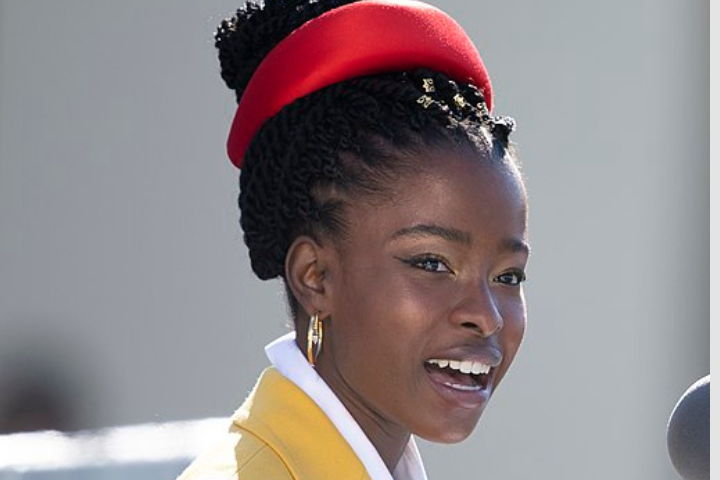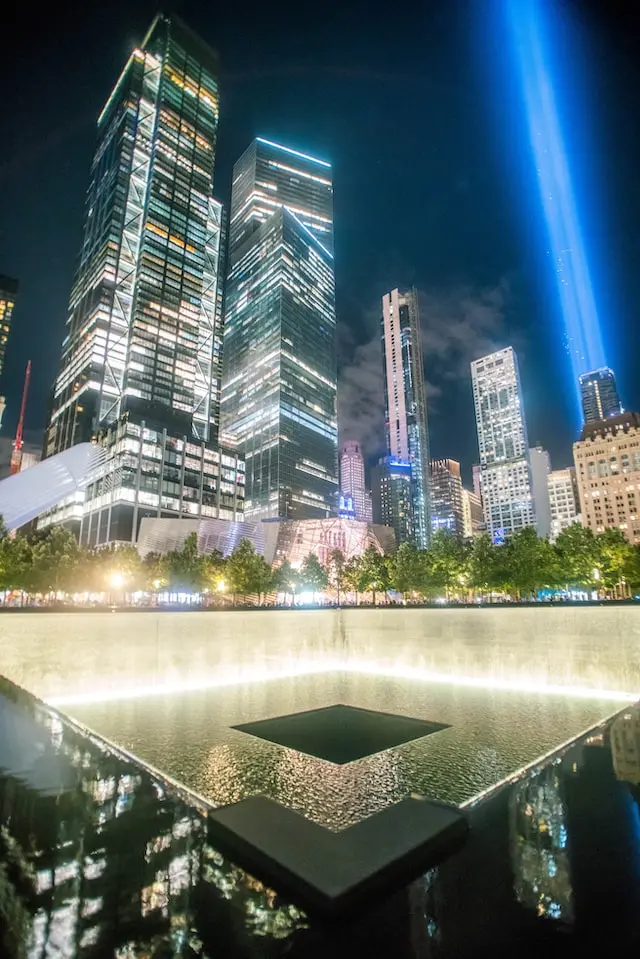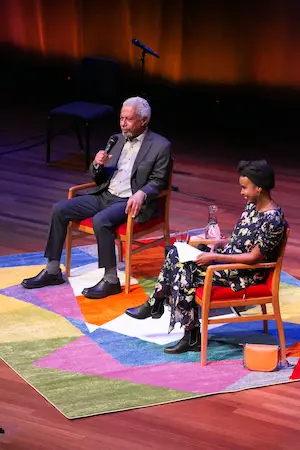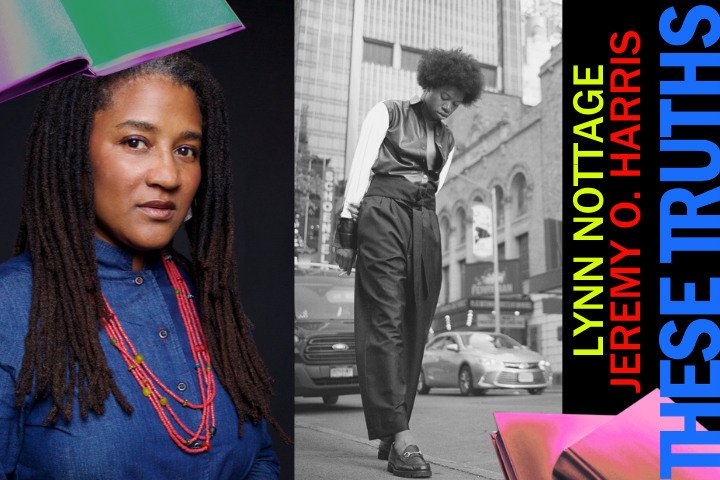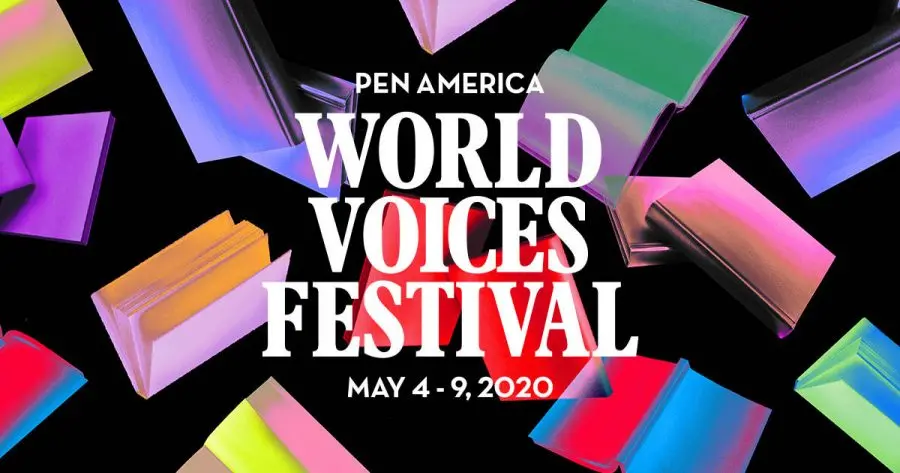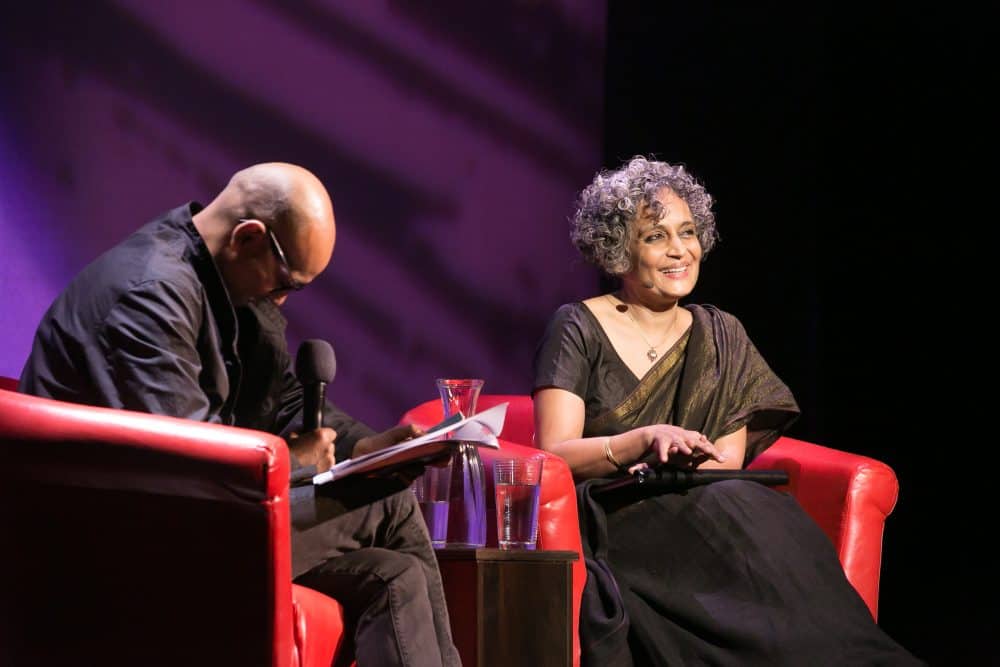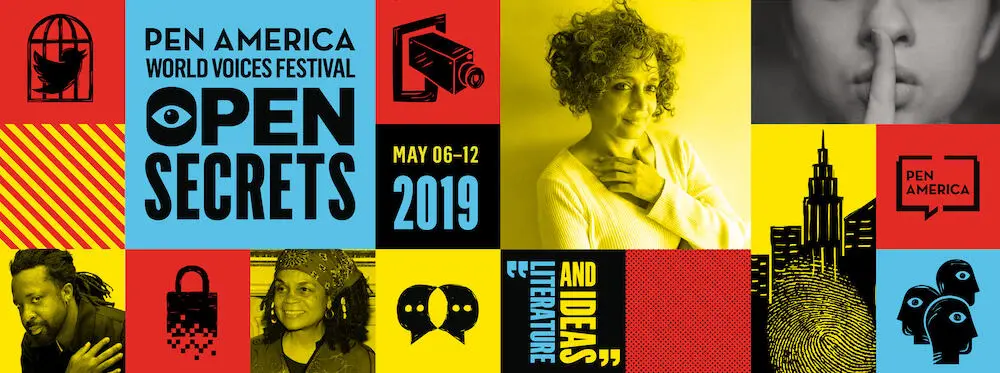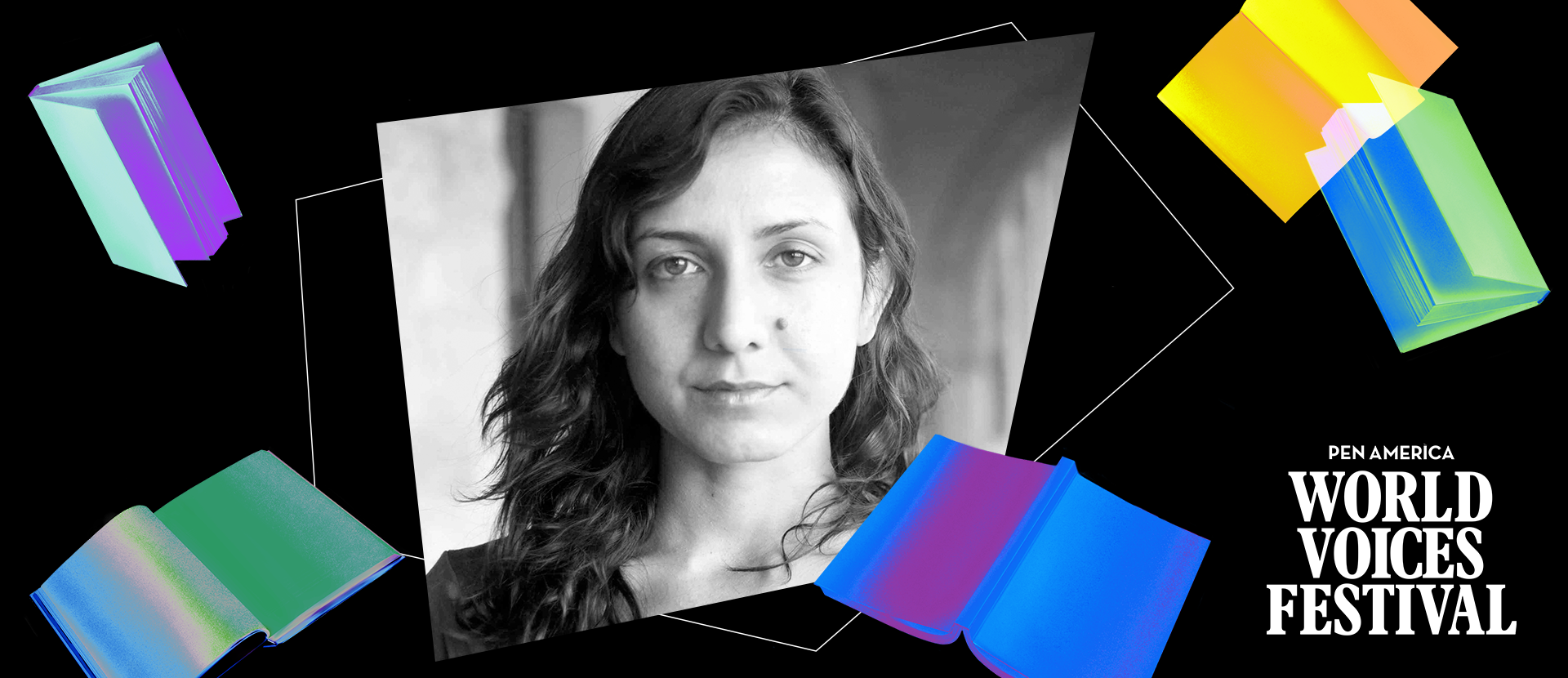
By Lisa Tolin
Ottessa Mosfegh isn’t entirely sure why she’s a phenomenon on TikTok, where she doesn’t have an account.
Asked about the chattering about her on social media, she turns the question around. “I don’t really know, to be honest. What are people talking about?”
The challenge of keeping up with online discourse is part of the conversation Moshfegh, the author of Lapvona, My Year of Rest and Relaxation, and the PEN/Hemingway winner Eileen, hopes to have at her opening night panel at PEN America’s World Voices Festival, “Ottessa Moshfegh Presents: Why Write?”
Moshfegh, a festival guest chair, will speak with three very different novelists—Rachel Kushner (The Mars Room, The Flamethrowers), Min Jin Lee (Pachinko, Free Food for Millionaires), and Akhil Sharma (Family Life, A Life of Adventure and Delight)—about why they write, and how they respond to a discourse that “shifts faster than novelists can write.”
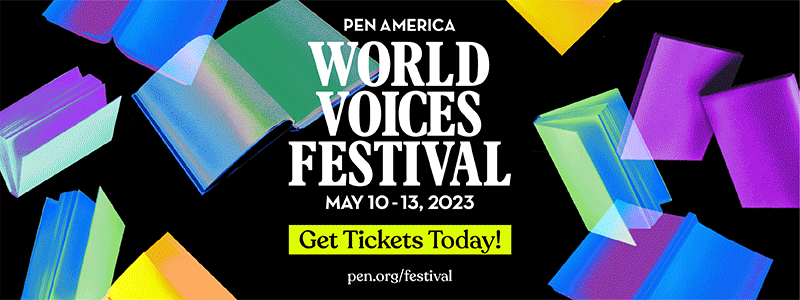
In conversation with PEN America, Moshfegh talked about how online conversations and identity politics affect the writing process.
What made you want to have this discussion at the World Voices Festival?
First of all, I have a lot of respect for PEN, and I’m also very grateful to PEN, because I won the PEN/Hemingway award with my first novel, and it was an incredible honor and really shifted the way that I thought about my work and having a place in literature. So I know that the power of its influence is not to be taken lightly. Second of all, the World Voices Festival just seemed like an amazing opportunity to create a new kind of conversation that I rarely get to have. And when they asked me to be a chair, I mean, I didn’t even think about it. I was just like, “well, of course I would.”
I was excited to talk to three writers whose work is so different, and whose work travels the world about why they write, what they think of the place of literature right now, how they contend with politics, social politics, identity politics, without sacrificing their artistry. Those are things that are very, very dear to me personally. I have really strong opinions. But it’s also not something that I discuss with other writers. privately or publicly.
It’s a huge topic, why write? How would you answer it?
I’d say 95% of the reason I write fiction is because I want to get better at writing fiction. So for me, it’s very personal. It’s about building an ability. And the only way for me to do that is to practice. So I don’t consider any of my books a masterpiece. I think I write in order to follow a path toward what I want to be able to do. And I think if I thought of it another way, it would be too devastating to say goodbye to projects.
“When I am writing, it’s kind of like I’m listening to my favorite song.”
And I also write because it’s really the only way that I know how to express myself from a place that feels very deep inside. I write because I have a ridiculous sensitivity to language and fiction. And when I am writing, it’s kind of like I’m listening to my favorite song. I get a very deep satisfaction that feels like a spiritual kind of being moved in a way that I can’t explain. I write because I love writing, and it’s what I want to do. Sometimes I make decisions based on what I want to communicate to others, and that’s where my feelings and thoughts and questions for society, the society of readers, comes in. So I’d say 95% totally selfish, 5% motivated by curiosity about other people and their lives and how people think.
In your panel, you’ll be talking about keeping up with the discourse. Media is changing, the world is changing. What’s the biggest challenge for a writer?
Well, this is what I want to ask them. I think one challenge that comes to mind is our identities as writers seem to be redefined by an industry responding to some social and cultural shifts, so even when Eileen came out in 2016, I was really surprised by what a big deal having an “unlikable female character” was, you know, it was like, Oh, now the, the critics and the media are taking this on as a new subject. I was just early in this big fad of taste. Taste had shifted away from likable heroes. We wanted imperfect people to relate to. But it really has nothing to do with my process . Writing into a different world of values placed on different kinds of characters is … I’m curious if it’s repellent? Or is it interesting? Does it open doors for writers and the way that their imaginations move?
I worry that we’re at a place where literature criticism online is replacing a more intellectual conversation about literature as its own art form. And I think our primary way of focusing on literature is shifting away from, this is a book, which is a piece of art that stands alone in itself, it is an end, it has integrity, to, this is a reflection of the author. So we ask a very basic question of everything in in arts and entertainment. Is it good? Or is it bad? Is this representing good ideas or toxic ideas?
“It’s this way that culture self-censors, when it’s anxious.”
And that, to me, is very dangerous, because if you start criticizing the content of a piece of artwork, you’re cautioning other artists not to go close to the subject. You know, it’s sort of like, I don’t like dogs. So I’m going to write all this social media about how terrible dogs are, because there was this book about dogs, and it was terrible. Now, if I put a dog in my book, am I signaling something? It seems that sensitive. It’s this way that culture self-censors, when it’s anxious. And yet, I also see this new rubric as a step forward. The democratization of criticism is interesting, and taking power of judgment away from these privileged few, and scattering it to whomever feels correct. To me, it’s just that we need to keep in mind that those judgments should not be determining value in art.
It ties into the conversation people are having about who gets to write what story. Is it canceling somebody to say you can’t write that story? Is it self-censorship if writers say, “I can’t touch that story anymore?” How do you feel about that?
I feel so sad about it. I’m struggling with that in a work of my own. And I came to a pause, or I realized that if I pursue this project now, I’m setting it up for unfair judgment, to publish it in this kind of social climate. So I pressed pause, and you know, maybe things will shift.
Obviously, you write alone, but on social media, people identify with your work very deeply. What is that like to be a focus of conversation?
I guess I know that during the worst times of COVID, a younger generation found My Year of Rest and Relaxation and found it to be something that resonated with them, because we were all kind of having a similar experience of self isolation, and it was a very depressing time.
I don’t really think that any of that has anything to do with what I’m working on now, although I did make some choices about characters based on responses to previous characters, because it becomes part of my own thinking. Everyone who read Eileen kept talking about how disgusting she was, even though what I had portrayed, I thought was a portrait of a young woman who felt that way, but wasn’t actually disgusting. So I decided, okay, how are they going to respond if they see this perfect, skinny, gorgeous blonde girl doing all these things? They’re going to have to come up against their own bias, or just let it go.
And, among other reasons, I chose to write about teenagers in my next book. It is by no means a young adult novel, and I’m just at the beginning. But I think the interest in My Year of Rest and Relaxation over the pandemic was the first time I thought about young readers. And I have two teenage nieces. And for some reason, COVID really sent me back to my own high school days and thinking a lot about the ‘90s. So I just feel like there’s a lot of teenager energy around me, and that’s how I got drawn to writing about these two teenage characters, which I’m excited about.
What has it been like turning Eileen into a movie?
Really, really fun, and a bit surreal, and a real education, in film and film industry. I wrote the screenplay adaptation with my writing partner, who’s also my husband, Luke Goebel. And now we’re collaborating on a lot of different film projects, which is not what I thought our creative rapport would lead to, because when we met, we were both fiction writers. So that’s been really, really exciting. Translating the novel into a screenplay, where I’m not the one calling all the shots was so much fun because it allowed me to really rely on the reality of the book. You know, Eileen really became a real person. And then she literally became, you know, someone that I could look at.
The young woman who plays Eileen — her name is Thomasin McKenzie — we saw Thomasin’s tape and it was as though Eileen showed up. And when you have a physical response to performance in that way, there isn’t any more intellectualizing about who would be the best. It was Thomasin McKenzie.
Lisa Tolin is Editorial Director of PEN America.

